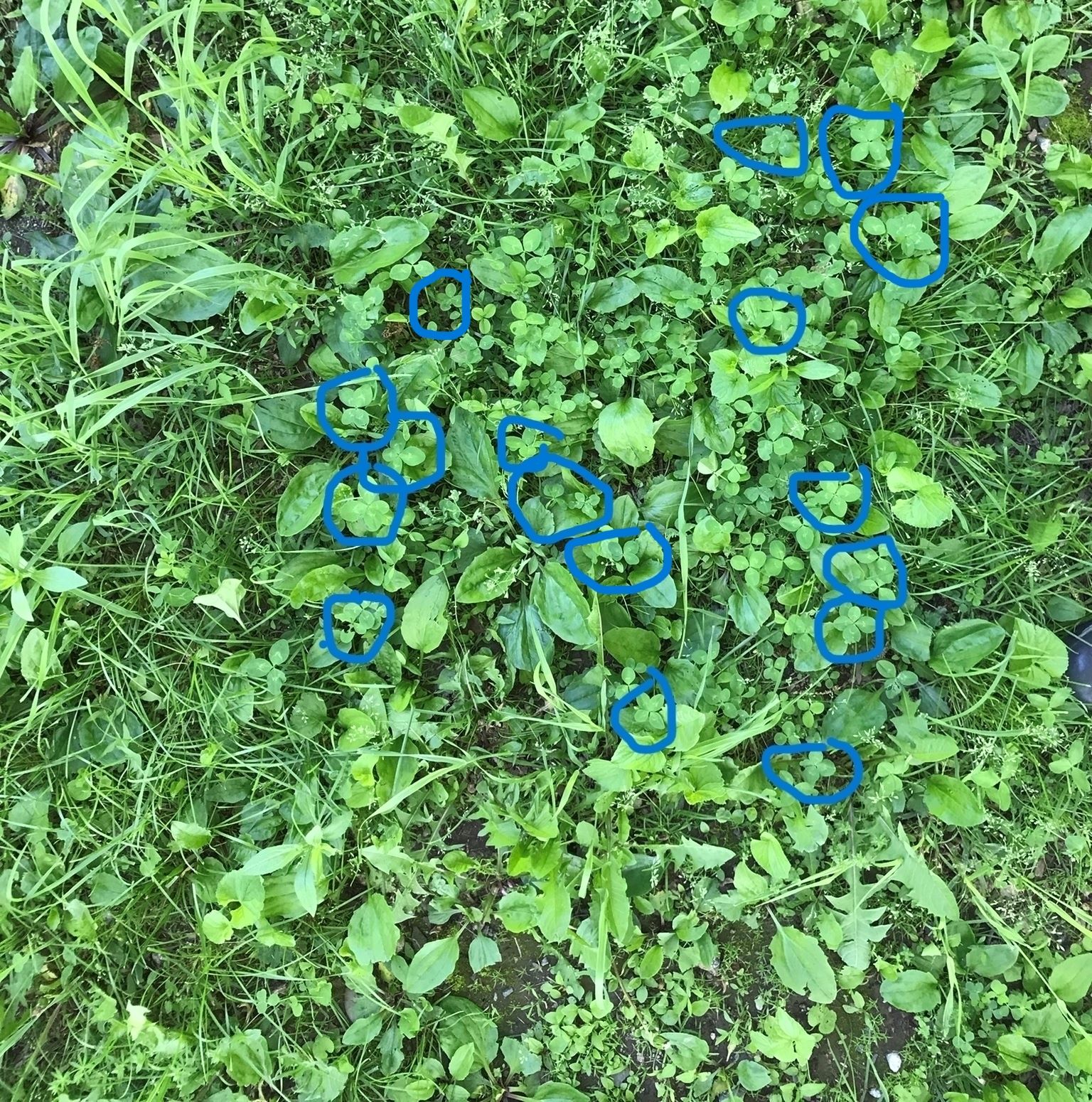The Gift of Clover
June 2, 2023
When our sheep first started grazing at Hill-Stead, the pasture consisted of multiflora rose, a few saplings and poison ivy. The brambles were so dense the sheep’s wool would frequently get hopelessly tangled up in the thorns and they’d be completely unable to extricate themselves. I’d rescue them by cutting one thorny branch at a time until they were finally able to yank themselves free – inevitably trailing a branch of thorns which would shred my fingers as they bolted away. Despite its heavenly fragrance, I grew to hate multiflora rose with a passion.
We mowed the roses with our “brush hog” and when they tried to regrow, the sheep grazed them down again, and again. After a couple years, the multiflora rose disappeared, but unfortunately, under those massive bushes was bare ground which quickly filled in with poison ivy. After a few more seasons of grazing, that too has pretty much disappeared and has been replaced by a wonderfully tasty assortment of grasses (according to the sheep). This spring, much to our great pleasure, we are beginning to see various clovers starting to grow.
I have come to truly love clover if for no other reason than it is a very reliable and abundant source of nectar for honeybees. White Clover blooms early and persists when most other nectar sources wither from the heat. The fact that bees depend on clover is reason enough for me to welcome it to our fields, but there is more – much more!
As a proud member of the legume family, clover is high in protein, which our sheep, on their strict vegan diet, have been otherwise lacking. From now on, our flock will benefit greatly from having a healthy dose of clover in every mouthful of grass. And they clearly love it.
If the fact that the bees can depend on it, and our sheep love it, isn’t enough, there’s even more! Clover has the ability to draw nitrogen out of thin air and add it to the soil. If that’s not pure magic, I’m not sure what is. It’s a process called nitrogen fixation and scientifically it’s been well studied and understood - but to me it’s simply “a gift”. A well-grazed pasture doesn’t ever need chemical fertilizers. The clover adds enough nitrogen to the soil to encourage all the grasses around it to thrive. I don’t particularly care if our clover has three-leaves or four – I always feel incredibly lucky whenever I see it.
A patch of four-leaf clovers in our pasture!
